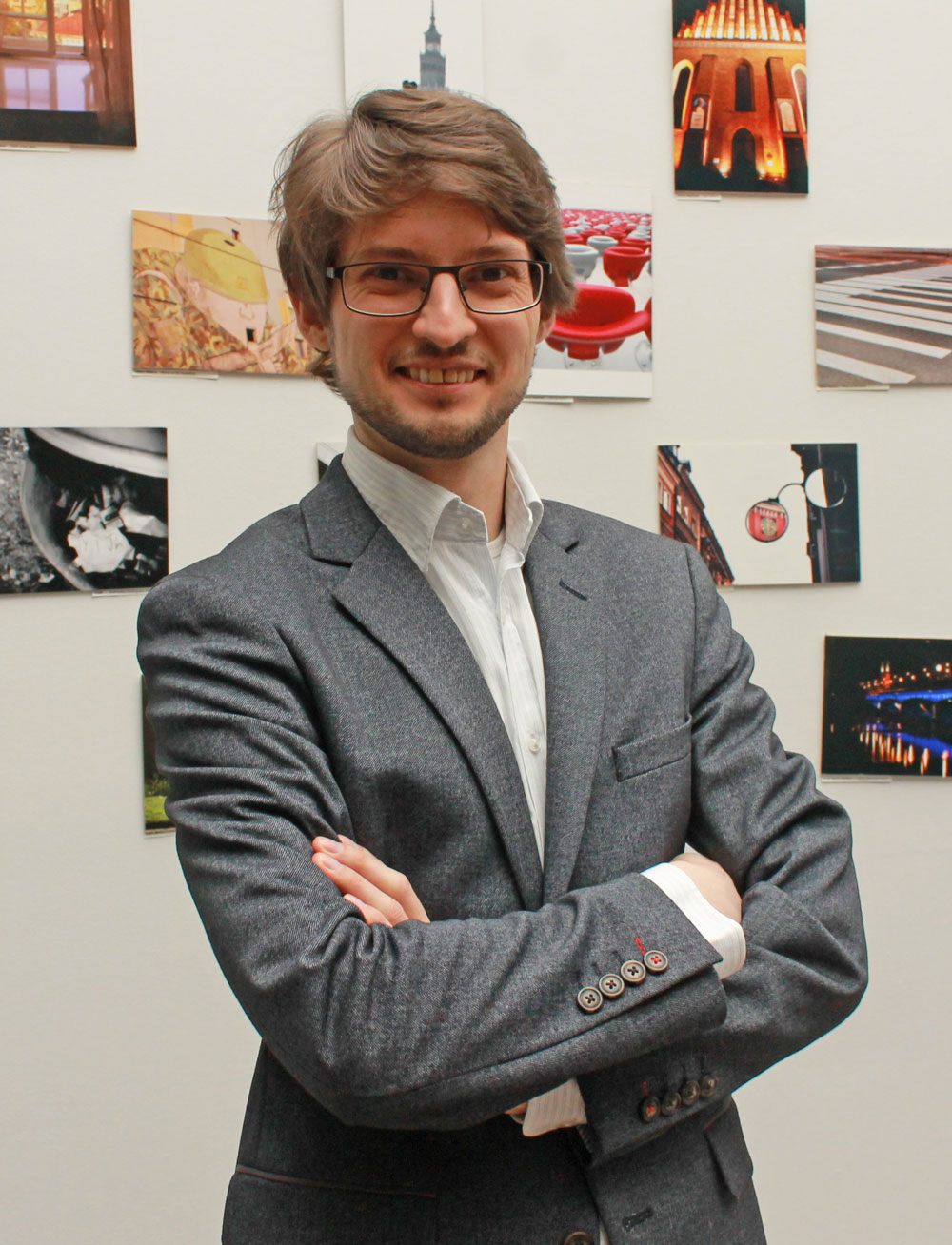
Canadian Institute of Ukrainian Studies Research Fellow Ostap Kushnir
Brought in by the Canadian Institute of Ukrainian Studies (CIUS) as a research fellow for the months of June and July, Dr. Ostap Kushnir is a Ukrainian-born professor working in Poland whose primary research interest is critical geopolitics. But while his studies have led him through journalism, international relations, and political science, he doesn't define himself by any one discipline. "I call myself a curious person," he says.
While his work at CIUS will consist of a geopolitical study, and his other academic projects focus on Russia-Ukraine relations, Kushnir's path to his current interests was a winding one. A student in Ukraine, he completed his PhD dissertation before most of his counterparts; too young to defend the dissertation, he spent time writing Ukrainian fantasy books to flesh out a literary landscape which he saw as being made up, primarily, of translated Western classics and Russian novels. In 2010, he moved to Poland, where he completed his second MA at the University of Wales in International Relations, seeking to improve his English, and defended a second PhD dissertation.
Currently a professor at Lazarski University in Warsaw, Kushnir explores a variety of topics in his work. It was here, he says, that he began to build up an academic career "focused on English language research in international relations." This research prompted his first academic monograph, Ukraine and Russian Neo-Imperialism: the Divergent Break. Exploring Russia's aggression in Ukraine, he understands Russia as an expansion-oriented state.
His work at CIUS is, in many ways, connected to his geopolitical research. Arriving in Edmonton, he carried "a small bag of clothes and a big bag of dreams." As a researcher with CIUS through June and July, he seeks to fill a gap in the interwar history of Ukrainian geopolitical study, with a focus on Yuriy Lypa. America, Britain, Poland, and many other countries, he says, have canonical scholars that are well-known, and well-recorded, but "because of unfavourable conditions, reigned by communism, the scholars from Eastern Europe who contributed to global science were simply wiped out." Kushnir hopes to bring back the names of these erased scholars and to re-popularize their theories.
But his professorship hasn't limited his broad curiosity about a variety of fields. "For fun," he says, he works on a series called Academic Driving, the first installment of which, An Introduction to Academic Driving, was recently released. "I found my niche there," he says. "I am a social scientist…I combined that science and automotive culture." Taking various theories, he applies them to cars. "For instance," he says, "what if Aristotle invented traffic rules? Do cars have souls? Can rational choice theory explain car purchases?" His interests include engineering, geopolitics, and astrophysics, but also philosophy and morality. He sees cars as a way to examine intercultural communication and discover new ways of understanding the world. After his success, Kushnir is in the process of writing a follow-up text, An Advanced Academic Driving.
"I am popularizing science," he tells me. "I am encouraging people to take a broader outlook." Academic, for Dr. Kushnir, is not insular, but a tool to understand our everyday lives and cultures. "I am trying to develop critical thinking in people. Cars are the entry point, a topic of mass interest… through the cars, I am trying to bring a wider perspective and emphasize the social relations."
Kushnir holds an inspiring and rare passion for academic thinking. He sees our whole lives and environments as brought about by scientific curiosity. "I am discovering things," he says, a scholar who asks questions to see what might be found. Even his trip to Canada is an opportunity for learning through cultural exchange. "My first morning, I couldn't open the window because they open differently," he jokes. "You have such huge cups of coffee!"
Keen to explore Edmonton and connect with the academic community at the University of Alberta, he sees himself as participating in an existing hub of global research and knowledge taking place here. "I'm very excited," he admits.
Ostap Kushir's academic and popular science books are available on Amazon, and you can follow his Twitter for further updates on his work.
Katherine DeCoste is a student writer for the Arts Collaboration Enterprise (ARC)